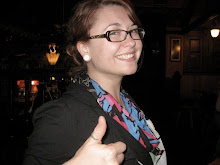The literacy of new media has changed, as electronic communication becomes more and more a part of daily life. From what I understand this idea is the language of alterative media. This is the language driven by alternative forms of communications that has come out of the electronic age, “The electronic age is also an age of ‘secondary orality’, the orality of telephones, radio, and television, which depends on writing and print for existence” (Ong 3). I am having trouble hammering down exactly what is meant by a ‘secondary orality’, it seems to me that it is both the actual written language of electronic communications (like e-mails and texting) and the style in which these types of communications are done in. In attempting to answer this question I looked at secondary sources for assistance in trying to wrap my mind around the actual definition. The best definition seems to lean towards “secondary orality” as the specific language of new media. An example of this could be the “text talk” phenomenon. This is a personal pet peeve of mine, and sadly it is one that has overwhelmed the composition skills of the freshman, college age generation. In my classroom, I am fighting a constant battle against students who use the abbreviated wording of text messaging in their papers. They cannot seem to grasp that using this type of speech in academic work is not what they should be doing and even after I always give a speech about how text talk is one of the things that drives me crazy, they seem flabbergasted at the audacity of my practice of just circling the offending text-talk and adding a notation of “Really?” This idea of a second orality (and literacy) also reminds me of the earlier days of wide spread public computer ownership and the changes in language that came anlong with it. I remember when the movie Hackers came out and the idea of 733t (leet) speak became more widely known and was a topic of speculation and interest in the early days of the internet (this was during the time when hacking was still a relatively new concept; now it is not at all unusual to hear someone, even someone with out extensive gaming experience, to use terms like “w00t” or “pwnd” in everyday parlance).
I hope that I have grasped at least the basis of what Ong means by “secondary orality”, it seems to be the kind of concept that you come in contact with so often in daily life that it is hard to put into words. However, like the other elements of orality that have come along with the electronic revolution, mastering an understanding of the constantly changing languages of technological progress is necessary to thrive in a world that has become so integrated with these forward changes.

No comments:
Post a Comment